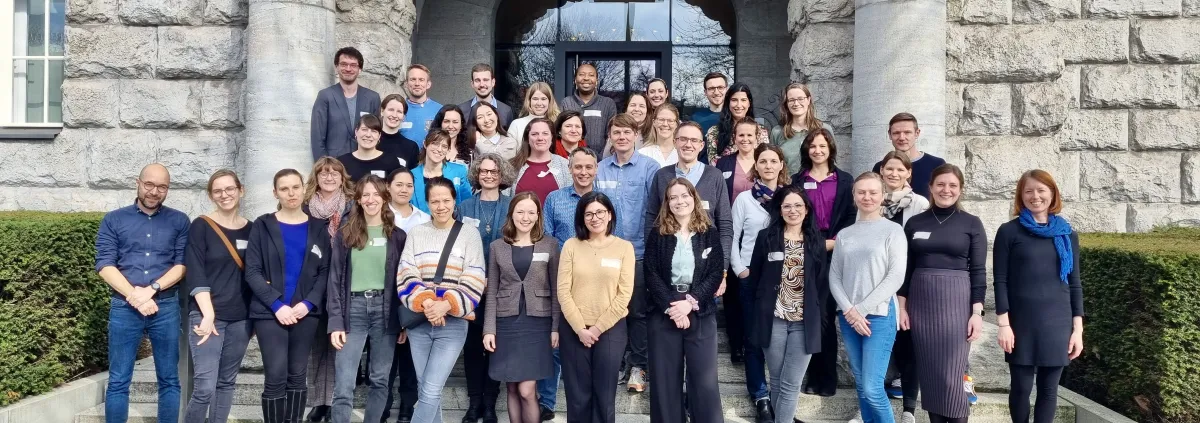The third joint workshop of the German Biosecurity Programme took place in Berlin on 5th of March 2024. An overwhelming number of 45 programme staff from all five implementing institutions (IMB, BNITM, RKI, FLI and GIZ) and two representatives of the Federal Foreign Office came together to get to know the people behind the email addresses, discuss the programme's working methods, exchange views on specialist topics and carry out onboarding for the shared GO4BSB learning platform.
In the morning, teams from different institutions presented the components and roles within the programme using the symbols "ship" and "ecosystem". We discussed the following questions in a creative way: Who steers? Who gives power? What do we produce and who benefits from it? Who are our natural enemies?
What followed was an introduction to GO4BSB, the platform you are visiting at this very moment: The online learning platform of the German Biosecurity Programme has been revised and now shines in a modern and easy-to-use guise. The programme staff is invited to use the platform - either with their own new content or by using existing materials. Many thanks to all those who have already uploaded good learning materials here.
The afternoon was characterised by professional exchange: content and experiences could be collected and discussed together at seven stations on different topics: A 2x3 metre annual plan illustrated the impressive number of activities planned for this year. When it came to sequencing training, many program members realised that they face the same challenges, e.g. with data transfer. Further, participants collected practical tips for working together as equal institutions and partners internationally and reflected on their privileges - both as professionals and personally.
At the "New Technologies" station, opportunities, and risks as well as possible applications were collected. There was an open exchange on "One Health and the climate crisis", probably the greatest challenge of this century. The programme office also collected feedback on the structure of a joint communication guide.
The station on the topic of "Sustainable results and (exit) strategies" was particularly well attended. Here, participants discussed when the objectives of the programme can be considered achieved, how cooperation can continue "after the programme", reflected on their motivation and collected suggestions for solutions. The subsequent presentation of the results in plenary also met with lively interest and the strong desire for (more) strategic thinking and information on the sustainability of the programme's achievements became clear.
Thank you to all the participants for the fruitful exchange!
Group work: The German Biosecurity Programme depicted as an ecosystem with all its stakeholders, goals, motivation and challenges.
(Copyright at GIZ, 2024)
Authors: Programme office (GIZ), editorial adaptation: GO4BSB (BNITM), March 2024
Copyright for all photos at GIZ, 2024

Please log in or sign up to comment.